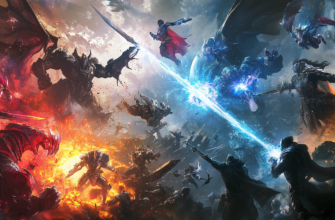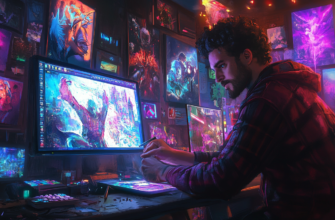- Why story-driven games are winning over gamers
- What are story games?
- makes story-driven games so enjoyable for players? Well, here are some reasons:
- Practical tips for getting into story games
- 1. Start with the classics
- 2. Don’t rush through them
- 3. Choose a game depending on your vibe
- 4. Make replaying part of the fun
- 5. Surround sound and visuals matter
- The future of story games
- Conclusion
Why story-driven games are winning over gamers
Let me guess. You’ve probably heard a lot of hype about story games lately, right? More and more gamers are flocking to titles that have engaging narratives and captivating characters. But what makes these games so appealing, and why do they seem to be growing in popularity every year? As someone who loves gaming as much as you do, I figured I’d break down why story games are becoming the go-to experience for casual players and hardcore gamers alike.
Whether you’re already a fan of story-driven titles, or you’re curious about putting your fast-paced shooters on pause to try something different, you’ll find by the end of this post that good stories aren’t just for books or movies—they’re for gamers, too.
What are story games?
First, let’s get on the same page. When I talk about story games, I’m referring to video games where the central focus is on the narrative, character development, and emotional connection. These are the games where memorable plots and twists pull you in, exactly like your favorite movie or TV series. Sure, they may have sword fights, puzzles, or some platforming action, but in story games, the “what happens next” is often more important than racking up points or winning a match.
makes story-driven games so enjoyable for players? Well, here are some reasons:
Why are story games so popular suddenly? There’s a mountain of reasons, but I’m going to take you through the ones that stand out for me based on personal experiences and the broader gaming community.
- Emotional depth
- Immersive worlds
- Character-driven gameplay
- Interactive storytelling
- Evolution of game technology
Think about it. Games like “The Last of Us” or “Red Dead Redemption 2” have you talking about them long after you finish playing. It’s because of the emotions they stir up. These games dive into deep issues—loss, love, survival, and redemption. As players, we’re not just controlling a character on the screen; we’re living their journey, and that makes the experience so powerful. It hits differently when you actually care about the characters involved.
Story games tend to prioritize world-building, creating environments that have history, depth, and layers. Take “The Witcher 3,” for example. As you walk through bustling towns or haunted forests, it’s not just about following the main plot; it’s about getting lost in a living, breathing world that responds to your choices. Story-driven games give you a reason to care about every nook and cranny of the setting by linking it back to the story.
You might be thinking, “Sure, action is cool too,” and I’d agree. But when you’re in a story-driven game, every action feels more meaningful when it’s tied to a character you care about. Why do players rejoice when they finish a Telltale Games series or get hyped about branching narratives in “Detroit: Become Human”? Because it’s all about shaping the characters’ fate, and your decisions in-game actually matter.
Movies and TV shows are great for telling stories, but video games have an upper hand: interactivity. You’re not just watching a story unfold; you’re part of it. Games like “Mass Effect” or “Life is Strange” involve player choices that steer the narrative in different directions. While watching a movie might give you chills, making a difficult decision as the protagonist of a game? That’s an immersive experience on another level.
One reason story games are exploding is due to the insane level of tech that developers are working with. We’re talking about better graphics, smarter NPCs, and enhanced AI. Think about how much more realistic games have become in recent years. In games like “Horizon Zero Dawn,” the animations and finer details bring characters and environments to life. The tech is allowing developers to craft more cinematic journeys that feel like you’re playing through an interactive movie.
Practical tips for getting into story games
1. Start with the classics
If you’re new to the world of story-driven games, I always recommend starting with some of the classics. Games like “The Last of Us,” “Bioshock,” or “Mass Effect” aren’t just fun—they’re milestones in the evolution of storytelling in gaming. These classics balance action, decision-making, and intricate stories to make sure you’re hooked from start to finish.
2. Don’t rush through them
Story games aren’t the kind of games you want to speed run through (well, unless that’s your kind of jam). Unlike some games where the goal is to finish as quickly as possible or one-up other players in competition, story-driven games reward players for taking their time. Explore the optional dialogue trees, dig into the lore, and savor every twist and turn. Trust me, the right story-driven game can feel like a rollercoaster that you’ll want to last forever.
3. Choose a game depending on your vibe
Looking for something epic and fantasy-driven? Go for “The Witcher 3.” Or maybe you’re in the mood for a game that touches on more personal, emotional topics? “Life is Strange” might be more your pace. There are story games for every genre and mood out there, and finding the right one can change how you look at gaming forever.
4. Make replaying part of the fun
One of the best things about story-driven games is that many offer different possible endings based on your decisions. You might make one choice and wonder, “What would’ve happened if I’d chosen the other option?” Many titles, such as “Until Dawn” or “Heavy Rain,” let you replay the game entirely differently, encouraging multiple playthroughs for the full experience.
5. Surround sound and visuals matter
This tip might sound a bit random, but trust me, a great set-up can enhance the experience. Some of these games have amazing soundtracks and voice acting that deserve to be heard in full effect. Play with decent headphones or a surround system to really dive into the world. The visuals are equally important—play on the best screen you’ve got for a more cinematic feel.
The future of story games
This isn’t just a trend, my friend; story games are here to stay. As developers get better at weaving narratives with gameplay, and game engines become more powerful, we’re set for even more interactive masterpieces. Virtual Reality (VR) also opens up even more immersive narrative possibilities. Imagine really being *inside* the story by walking in your character’s shoes—not metaphorically, but literally.
Who knows, maybe down the road we’ll see even more collaboration between game makers and traditional storytellers, like novelists, screenwriters, or filmmakers. The possibilities are endless, and as a gamer, I’m stoked to see how the genre grows.
Conclusion
It’s clear why story games are becoming a massive part of the gaming landscape. They offer emotional depth, compelling characters, and immersive worlds in ways traditional gaming sometimes can’t. For those of you who’ve only dipped your toes in this genre, I urge you to dive deeper. It’s a world where your bond with the game’s characters lasts long after you’ve put down the controller.
Now it’s your turn to let me know: Which story-driven game is your favorite? Or are there any epic narratives I missed that you’re dying to recommend? Let’s chat in the comments below, and maybe I’ll get around to trying your personal favorites!

















